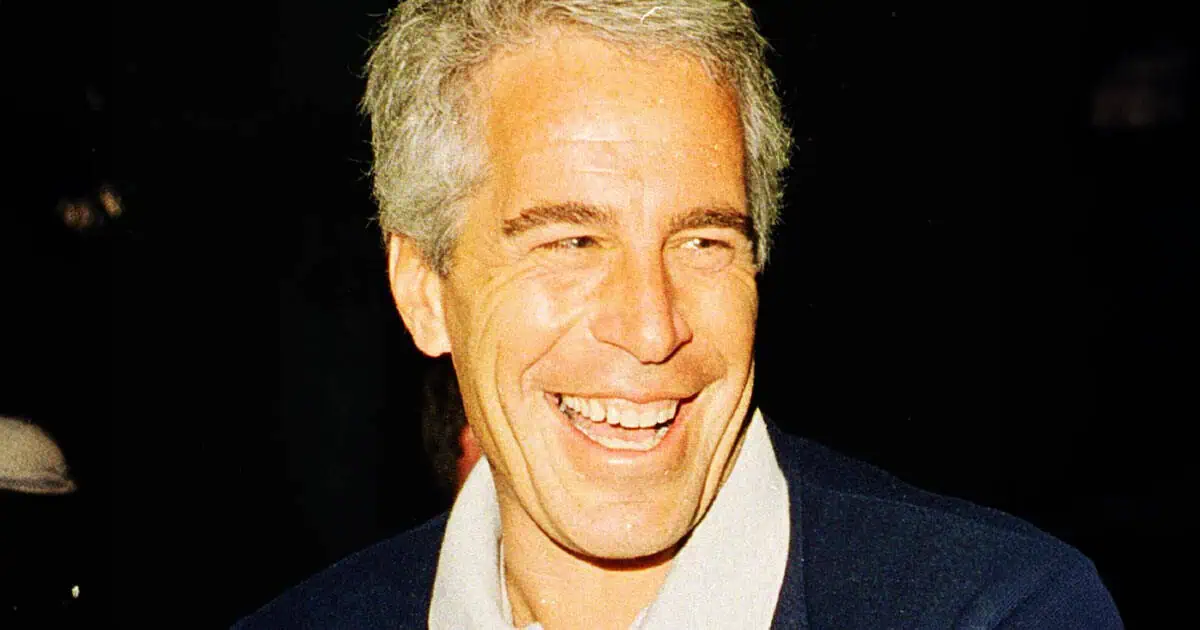Newly hacked and leaked emails have emerged that suggest Jeffrey Epstein was working with Israel to broker diplomacy between the Jewish state and Russia.
“With civil unrest exploding in Ukraine, Syria, Somalia, Libya, and the desperation of those in power, isn’t this perfect for you?” Epstein allegedly asked former Israeli Prime Minister Ehud Barak in a 2014 email.
This bombshell from hacked correspondence paints a shadowy picture of backdoor diplomacy during the Syrian civil war, raising serious questions about influence and power.
The leaked emails were obtained by the hacker group Handala Hacking Team and disseminated by Distributed Denial of Secrets.
They suggest that Epstein facilitated covert diplomatic efforts between Israel and Russia to shape policy during the Syrian conflict, the Daily Caller reported.
The main players here are Epstein, a disgraced pedophile financier with notorious connections, and Barak, a former Israeli leader with deep military and political roots.
Their alleged collaboration, spanning 2013 to 2016, aimed to sway U.S. policy, oust Syrian President Bashar al-Assad, and secure Russian cooperation.
But that wasn’t the only revelation.
According to the leaks reported by Drop Site News, Epstein arranged a private 2013 meeting between Barak and Russian President Vladimir Putin to discuss ending the Syrian conflict.
Their attempt to gain Russian support for Assad’s removal ultimately failed.
Still, the discussions may have contributed to later U.S.-Russia cooperation on dismantling Syria’s chemical weapons.
Epstein didn’t stop there, allegedly feeding Barak insider information from Russian elites about Putin’s international contacts and even offering advice on Israel’s Mossad intelligence agency.
It’s a startling claim that frames Epstein as a geopolitical fixer.
Could such unofficial channels really shift global events?
By 2015, the duo reportedly revived their efforts, pushing for U.S. military action against Iran and opposing the Obama administration’s nuclear agreement.
Barak’s attempts to change Washington’s stance fell flat, but the persistence of this backchannel raises eyebrows about hidden agendas.
Epstein’s frustration with the Obama administration’s lack of forceful policy toward Iran shines through in the leaks.
He reportedly urged Barak to publish narratives linking Syria to Iran, even suggesting Congress could be pushed to authorize military action.
“Hopefully someone suggests getting authorization now for Iran,” Epstein allegedly wrote, showing his impatience with diplomatic delays.
For context, it’s worth recapping the broader stakes during this period: the Syrian civil war raged with chemical attacks prompting Obama’s “red line” statement in 2013, while tensions with Iran over nuclear ambitions simmered.
Epstein’s alleged advice to Barak wasn’t just strategic; it was a calculated play to exploit unrest, much like his provocative 2014 email hinted.
Barak, leveraging Epstein’s connections, also sought ties with Russian-Israeli oligarch Viktor Vekselberg for wealth and access to Russian officials.
Though outcomes of these negotiations remain unclear, the emails suggest a pattern of using unofficial routes to bypass traditional diplomacy.
Critics might argue that such backchannels, while unsavory, are a reality of geopolitics; nations often use unconventional means to secure interests.
Yet, when figures like Epstein, with questionable motives, are involved, it muddies the waters of accountability.
Others could counter that Israel’s regional security concerns, especially regarding Syria and Iran, justify exploring all avenues, even controversial ones.
Still, aligning with Epstein’s network risks undermining legitimate diplomatic efforts.
Here’s how we got here: from a failed 2013 meeting with Putin to renewed 2015 efforts against the Iran deal, this alleged collaboration spanned years of global unrest.
And it’s far from over.
Hidden dealings like these can shape the wars and policies that affect us all, often without oversight.
When unelected figures like Epstein allegedly broker international deals, it’s a reminder of how much happens behind closed doors.
That 2014 question, “Isn’t this perfect for you?” echoes as a chilling motif of opportunism amid chaos.
It’s a stark contrast to the transparency we demand from leaders, and it raises questions about what else lurks in the shadows of power.
As Assad now lives under Kremlin restrictions in Russia after fleeing Damascus in 2024, the long-term fallout of these alleged backchannels remains unclear.
The next leak or investigation could change everything.
READ MORE – Royal Family Insiders: Epstein Sold Videos of Prince Andrew to Russia

Our comment section is restricted to members of the Slay News community only.
To join, create a free account HERE.
If you are already a member, log in HERE.